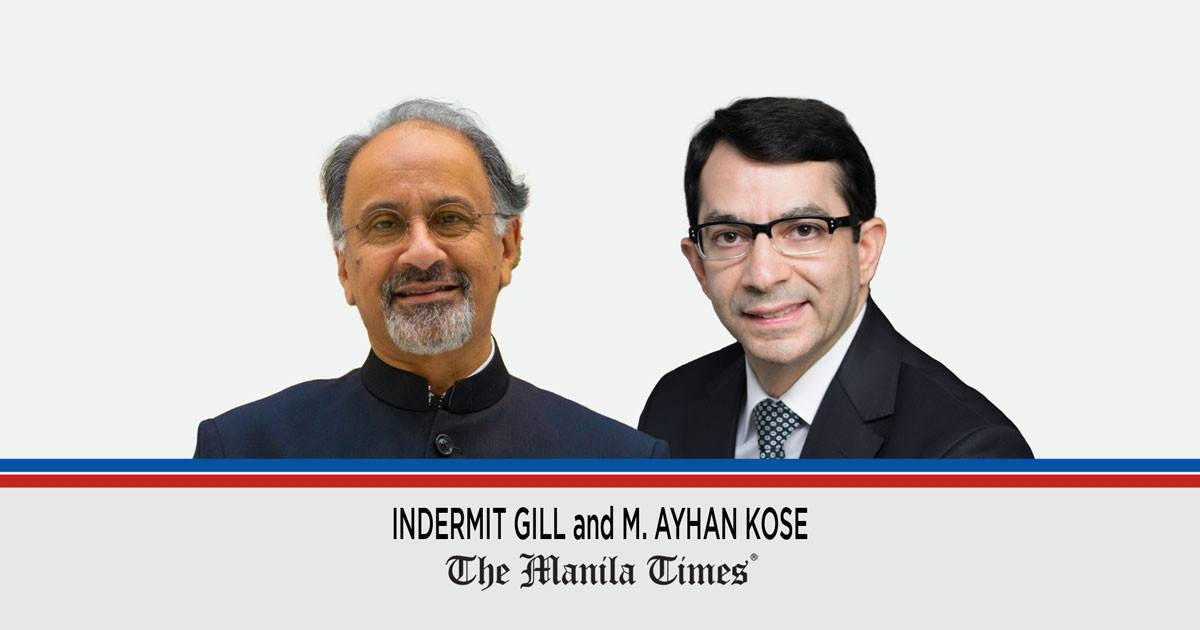Getting the global economy out of the slow lane

Getting the global economy out of the slow lane
WASHINGTON, D.C. — With global growth stabilizing for the first time in three years, inflation reaching a three-year low and financial conditions brightening, the global economy seems to be on its final approach for a "soft landing." But this positive news cannot obscure the grim reality: more than four years after the coronavirus pandemic began, the world — especially developing economies — is yet to embark on a promising path toward prosperity.
As a new World Bank Group report shows, the rate at which annual global growth is stabilizing — 2.7 percent, on average, through 2026 — is significantly lower than the 3.1 percent average in the pre-pandemic decade. That is insufficient to support progress on key development goals. By the end of this year, 1 in 4 developing economies will be poorer than it was on the eve of the pandemic. In 2024–25, most of the world's economies are set to grow more slowly than they did in the decade before Covid-19.
With global interest rates expected to average 4 percent through 2026 — double the level of the previous two decades — this outlook is unlikely to change. Rather than hope for a stroke of luck, governments should be working to advance long-term growth by fostering productivity, entrepreneurship and innovation in a setting of closer international cooperation.
This is the model that flourished after the fall of the Berlin Wall. Encouraging the flow of goods, capital and ideas across borders made possible roughly 25 years of unprecedented global prosperity, during which the gap between per-capita income in the world's poorest and richest countries narrowed significantly. Before the pandemic, an end to extreme poverty appeared to be within reach.
But international cooperation has been fracturing in recent years. Measures designed to restrain cross-border commercial flows are proliferating. With many major economies holding elections this year, uncertainty over trade policy is higher than at any other moment this century. This is all happening amid persistent weakness in investment: in 2013–23, investment growth in developing economies fell to less than half the rate in the 2000s.
This helps to explain why per-capita income growth in developing economies is expected to average just 3 percent through 2026, well below the 3.8 percent average in the decade before Covid-19. Many developing economies will not make any progress at all in closing the income gap with their developed-economy counterparts in the near term, and that gap will widen for nearly half in the first five years of this decade — the highest share since the 1990s.
But there are also bright spots in the global economy. The United States, in particular, has shown impressive resilience, with growth remaining buoyant even amid the most rapid monetary policy tightening in four decades. US dynamism is a key reason the global economy has some upside potential over the next two years.
Among emerging markets, India and Indonesia stand out for their strong performance. Buoyed by vibrant domestic demand, surging investment and a dynamic services sector, India's economy is projected to grow by 6.7 percent per fiscal year, on average, through 2026. (South Asia is now the world's fastest-growing region.) For its part, Indonesia is expected to grow by 5.1 percent, on average, over the next two years, thanks largely to a rising middle class and prudent economic policies.
These economies prove that high growth rates can be sustained, even under difficult conditions. If others want to achieve similar success and enhance their own long-term growth potential, they must enact policies that strengthen human capital, boost productivity and encourage more women to enter the labor force. To this end, efficient and well-targeted public investment is critical.
In developing economies, public investment accounts for just a quarter of total investment, on average. Our research shows that scaling it up by just 1 percent of gross domestic product (GDP) can increase total GDP by more than 1.5 percent over the medium term and boost private investment by as much as 2 percent within roughly five years. The benefits are largest in countries with a track record of efficient public investment and, crucially, sufficient fiscal space to increase spending.
For some countries — especially small developing countries (with populations of less than 1.5 million) — this is a formidable challenge. Home to just 17 million people, small developing countries face climate-related natural disasters at a rate that is eight times higher, on average, than in other developing economies. Making matters worse, two-fifths of these countries are in, or at high risk of, debt distress.
But this does not mean that small-state governments cannot steer their economies onto a more stable, prosperous path. On the contrary, they have considerable room to mobilize more revenues from domestic sources, which offer a more reliable fiscal base than foreign flows. They can also create fiscal frameworks — including rainy-day funds — capable of coping with frequent natural disasters and other shocks and improve the efficiency of public spending, especially on health, education and infrastructure. International policy coordination and financial support can complement these efforts.
Policymakers have good reason to celebrate: the world economy has avoided recession despite the steepest rise in global interest rates since the 1980s. But they must also recognize that, in much of the world, growth remains too slow to support progress on development and poverty reduction. Without stronger international cooperation and policies that advance shared prosperity, the global economy will remain stuck in the slow lane.
Indermit Gill is chief economist and senior vice president for development economics at the World Bank. M. Ayhan Kose is deputy chief economist and director of the prospects group at the World Bank.
Copyright: Project Syndicate, 2024
www.project-syndicate.org
